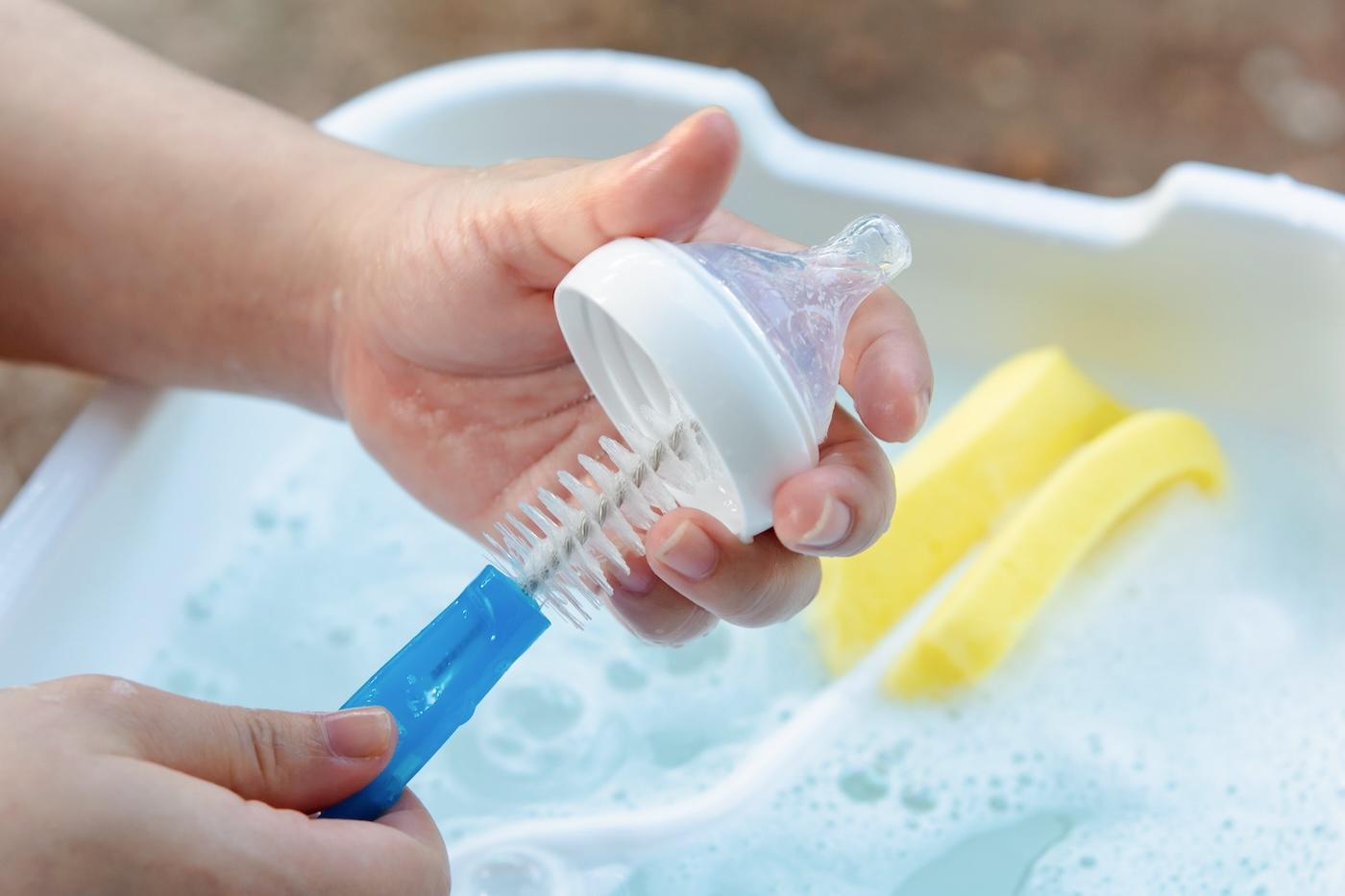BABY
Breastfeeding and Colic: Changing Your Diet Might Be the Solution
Nursing moms with fussy babies may wonder if they are part of the problem...

Written by
Happiest Baby Staff

This
Many new nursing mothers may ask themselves, "Is my diet causing this?" Perhaps it's the dark chocolate bar you munched on or the creamer you added to your cup of coffee that's the culprit?! To find the answer, we need to understand what colic is first…
What is Colic?
Colic is poorly understood but is classically defined by doctors as an unknown condition causing a healthy baby to cry for more than three hours per day, three days per week and lasting more than three weeks.
It typically starts at two weeks of life, peaks at six weeks and then resolves by 3 to 4 months.
What Causes Colic?
There are many theories that try to explain the cause of colic. In truth, it's usually provoked by a combination of too much stimulation plus too much quiet (too little 4th trimester rhythmic calming). During the first 4 months, all babies—especially fussy ones—do best with hours and hours of holding, rocking, shushing…like they enjoyed in the womb.
In addition, about 10% of the time, a baby’s screams can be set off by a formula allergy (dairy or soy) or acid reflux. So if your baby is not using formula, could the solution to your baby’s colic be changing your diet?
Can a Breastfeeding Mom's Diet Trigger Colic?
When a baby is intensely crying for no apparent reason, it’s natural for a new breastfeeding mom to question if what she’s eating is affecting her child—could what you eat show up in your breast milk?
Sometimes that is exactly the case! Within less than an hour, tiny molecules of the food you eat start drifting into your milk. And, if your baby is sensitive or allergic to those foods, crying may ensue. For this reason, moms are often advised to cut out common allergens in their diet (like milk and soy) or in more extreme cases go on an elimination diet. When it works, improvement is typically seen within as little as three to five days.
Studies on Colic and a Breastfeeding Mother's Diet
A study published by Pediatrics in 2005 followed 90 breastfeeding mothers whose infants were shown to be experiencing colic. Half the group was asked to eliminate allergenic foods from their diet for a week resulting in 74% of the infants experiencing at least a 25% reduction in crying and fussing.
The bottom line is that—if nothing else is helping—by eliminating common allergens from her diet, a nursing parent can sometimes lessen her baby’s colic.
![[object Object]](https://cdn.sanity.io/images/301lhh0a/production/de5c4cb08e445763913336ecfabe015550a57090-293x440.jpg?w=640&auto=format&q=75&fit=max)
Dr. Canale is from Montreal, Canada and earned her undergraduate and medical degrees from McGill University. She completed her residency training in Family Medicine at UCLA. After medical residency, she joined the teaching faculty at the UCLA Family Health Center, before joining the Santa Monica Parkside office. She enjoys seeing patients of all ages, especially families with young babies and young adults. Dr. Canale is a Member of the American Board of Family Medicine. Lactation Lab was born out of a personal need to understand what was in her breast milk. She, in turn, wanted to help mothers optimize their milk and baby’s nutrition. She is married with two young children and despite loving the weather in Southern California still enjoys winter sports such as skiing and playing ice hockey.
Disclaimer: The information on our site is NOT medical advice for any specific person or condition. It is only meant as general information. If you have any medical questions and concerns about your child or yourself, please contact your health provider.
SHARE THIS ARTICLE
MOST LOVED
Sleepytime Sidekicks












